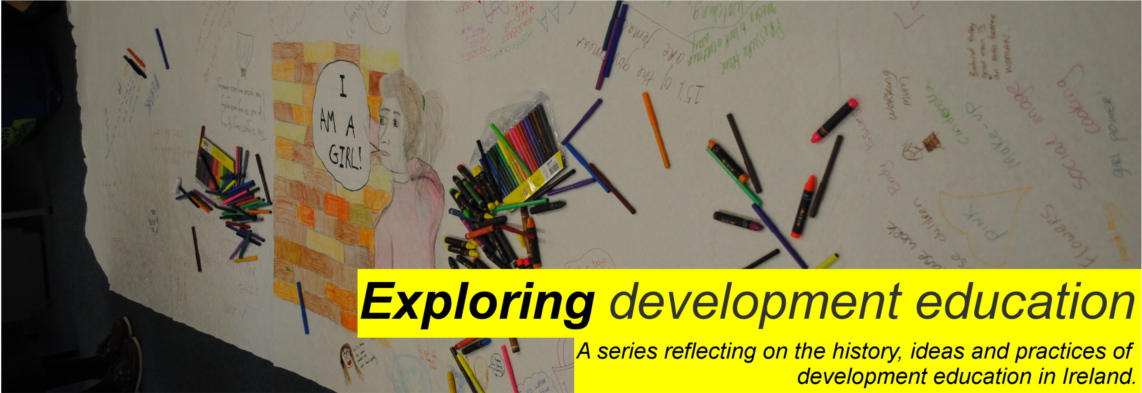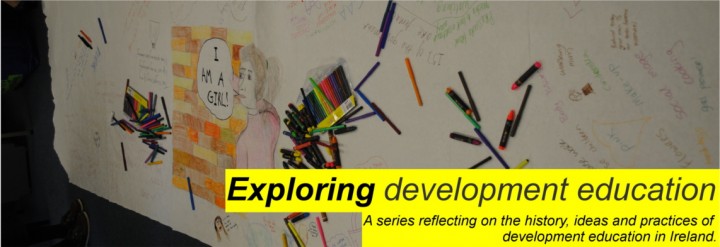
They say the past tells us a lot about the present. Queuing at immigration in the early morning at Lusaka International Airport in Zambia highlights the point.
Having submitted my passport, the immigration officer comments ‘Ah, you’re Irish, I was taught by the brothers’ – no visa required for Irish visitors. My Northern Ireland colleague was not amused, travelling as he was on a UK passport and having to pay for an entry visa.
This experience is not unusual throughout Africa, or indeed for that matter in many parts of Latin America and Asia – at least those parts where Irish missionaries and aid workers have been active. In such regions of the world, Ireland is known for the helping hand it has extended in education, health, agriculture and human rights – it is, as we say, part of what we are, at least in their eyes.
I stood for election to the Executive Committee of the Euro-Mediterranean Human Rights Network; I got elected on the back of strong votes from Iraqi, Palestinian and Egyptian human rights groups. Why I ask? Because they have a view of Ireland and Irish people as being on the side of the ‘little man’. Because I am Irish, I am asked to visit a prison, unannounced, to enquire after the welfare of a fellow colleague ‘detained’ without charge at the behest of a General in Beirut.
What a different view of being Irish to the one that has come to dominate our island and its image in Europe in the past number of years – one of individual and corporate greed, financial and property scandals, political corruption and rampant individualism and self-obsession.
As we struggle to redefine and re-imagine Ireland and to rediscover and ‘market’ Irish values post Celtic Tiger, we could usefully explore the Irish overseas and aid experience with its associated values of charity, solidarity, justice and community especially as these have been embodied in communities thousands of miles from our shores and amongst hundreds of thousands of the world’s poorest and most excluded.
Throughout the history of Ireland’s engagement with the Third World, the voluntary sector has traditionally led the way – it has provided the vision, the energy and the expertise that has built Ireland’s reputation internationally. Ireland’s aid effort was dreamed up, sustained and funded (in all its diverse manifestations) by the parish and community hall, the convent and the school, the voluntary committees and the often denigrated solidarity groups. Up and down the length and breadth of the island, literally tens of thousands of ordinary folk have made it their business to ‘care’; to go out of their way to help and to do whatever they could to try to make a difference.
From Biafra to Ethiopia, El Salvador to South Africa and the Philippines, it was ‘unofficial’ Ireland that led the way. Again, when it came to campaigning to get the Irish Government to fulfil its international aid obligations, it was the voluntary sector that provided the leadership – not ‘business Ireland’ or ‘official Ireland’ – that came much later. Local meetings, campaigning reports, candlelight vigils, political lobbying, school and youth club events; trade union action, picketing and letter writing (the oft dismissed day-to-day tools of democracy and citizenship) made the crucial difference.
In this dimension of our international reputation, it was not the boardroom or the Dail Chamber (or the ‘market’) that forged progress, it was not the consultant or the communications expert that ‘informed’ us on what needed to be done; it was the belief and hard work of the ordinary citizen.
And when our government refused to live up to its international obligations, as in the early days of the campaign against Apartheid or in the case when ‘official’ Ireland awarded an honorary degree in law to President Reagan or when the our aid budget was consistently reduced and dismissed ‘as an option not a duty’, it was ‘unofficial Ireland’ that campaigned on. School after school, community group after community group, religious order after religious order, volunteer after volunteer refused to give up but instead did whatever they deemed necessary to ‘make a difference’ and it is this sense of solidarity (with all its contradictions and weaknesses) that has contributed to making us what we are.
This sense of solidarity and doing the right thing (what is often termed ‘the habits of the heart’) is as much as part of being Irish as is hurling, traditional music and Riverdance.
It has been built up over the past 150 years through our missionaries, our volunteers and activists and, more recently our aid agencies. And, after a quarter century of campaigning, it has culminated in the development of an official government aid programme recognised and valued internationally – a programme we should do all in our power to nourish and protect against those inside or outside government who would undermine all that has been achieved.
The role of unofficial Ireland is to uphold one core truth – our obligations to the poorest and weakest (rather than those of the richest and strongest) rest on one fundamental principle – our moral responsibility to do what is right and reasonable, especially when the cost is so low.
While we need to continue to ask hard questions – does aid work? Does what we do make a real difference? Can we be more effective? – our historical sense of our duty, our experience and our sense of what the agenda is all about is what we need to drive us on, not the narrow, inward and selfish agenda of Official Ireland. Unofficial Ireland argues that we do it not because there is something in it for us but because it’s the right thing to do; and because not doing it is definitely the wrong thing to do.
Ireland’s overseas ‘aid story’ highlights a number of key ideas and principles that need to be at the heart of any renewal of Ireland and its sense of itself; ideas such as shared humanity and, therefore, shared responsibility; distributive justice; redefining value (and values); reclaiming community and citizenship over individualism and consumerism. In short, the promotion of attitudes, dispositions and virtues that underpin and strengthen democracy rather than those that undermine it.
The past does indeed tell us a lot about the present; it might even assist us in shaping the future.
……………………………………………………………………………………………………………………………………
This blog is part of our series Exploring Development Education reflecting on the history, ideas, people and practices of development education in Ireland.

